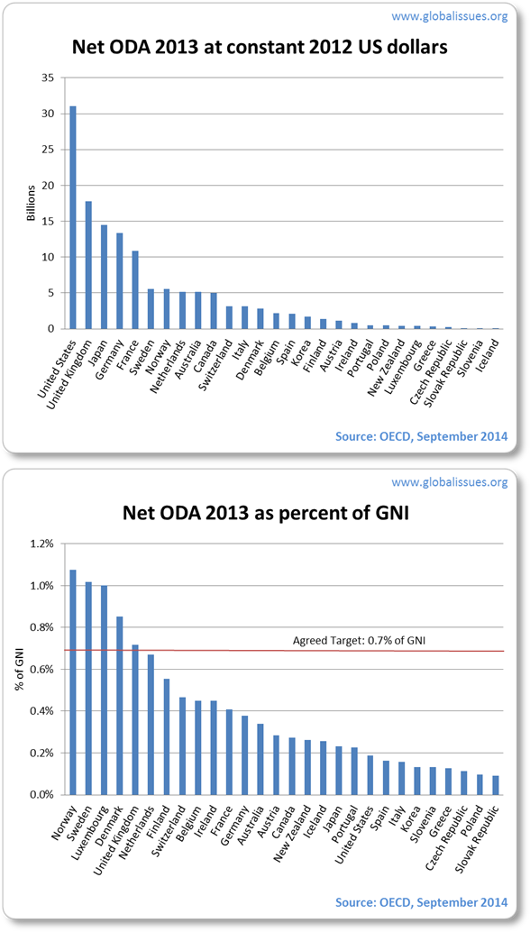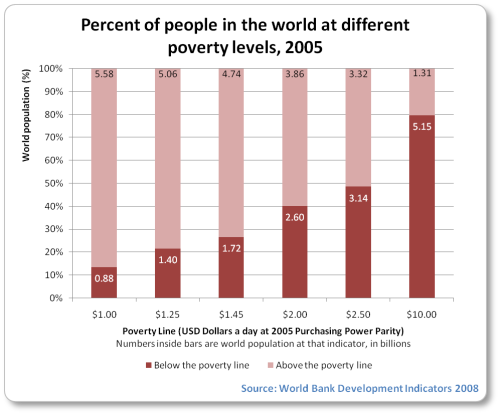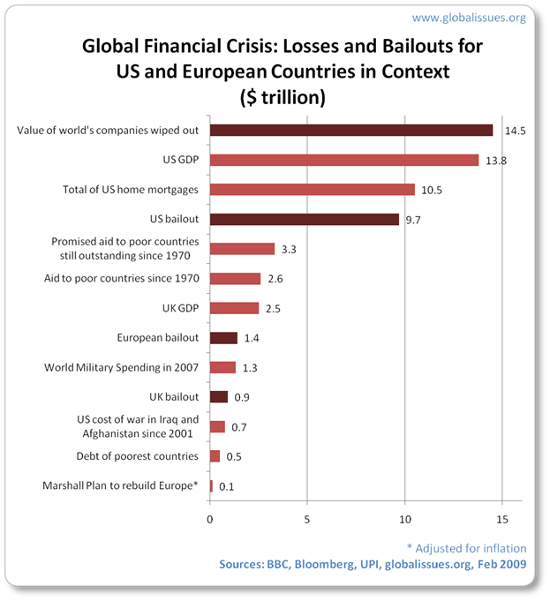Today, around 21,000 children died around the world. This daily tragedy, from poverty and other preventable causes, rarely makes headline news.
Latest world news
World
Portable Ginnery Could Revive Kenyas Ailing Cotton Industry
- Inter Press Service

NAIROBI, Apr 19 (IPS) - Kirinyaga University may have just breathed new life into Kenya’s ailing cotton industry as varsity dons develop a portable cotton ginnery.
Myanmar: Rohingyas in firing line as Rakhine conflict intensifies
- UN News
The UN’s top human rights official on Friday raised alarm over the escalating violence in Myanmar’s Rakhine state between junta and opposition forces, amid reports of the military regime forcing members of the minority Muslim Rohingya community to join their ranks.
Retaliatory spiral in Middle East must end, says UN chief after strikes on Iran
- UN News
Following reports of alleged Israeli strikes inside Iran near a nuclear power station early Friday, the UN Secretary-General António Guterres issued a new appeal to all parties to “stop the dangerous cycle of retaliation in the Middle East”.
Who Should be the Next UN Leader? - PART 4
- Inter Press Service
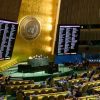
APEX, North Carolina / DUBLIN, Ireland, Apr 18 (IPS) - Is the rough-and-tumble of leading the UN General Assembly a good preparation for the top UN job?
Maria Fernanda Espinosa served as President of the UN General Assembly from 2018-2019, garnering votes from 128 out of 193 member states. With her victory, she became only the fourth woman—and the first from Latin America—to run this important UN body.
Renewable energy transforming the landscape
- UN News

Renewable energy, if supported by governments, can “truly change the landscape” in terms of achieving equitable access to affordable and clean energy, but only if those governments can move from “commitment to action”; That’s according to the Director-General of the International Renewable Energy Agency (IRENA).
Assembly President calls for massive investment in sustainable infrastructure
- UN News
The President of the UN General Assembly on Thursday underscored the critical need for resilient infrastructure if the world is the reach the 17 Sustainable Development Goals (SDGs) by the 2030 deadline.
US vetoes Palestine’s request for full UN membership
- UN News

The Security Council rejected Palestine’s request for UN membership on Thursday, with the United States casting a veto.
World News in Brief: Rights chief Türk urges peace in DR Congo, Haiti aid update, food insecurity in Timor Leste
- UN News
UN human rights chief Volker Türk this week met survivors of massacres in eastern provinces of the Democratic Republic of the Congo (DRC) who told him they are desperate for peace.
Gaza: UN experts decry ‘systemic obliteration’ of education system
- UN News

UN independent human rights experts on Thursday raised alarm over the “systematic destruction” of the Palestinian education system in the Gaza Strip, as Israel’s military operation continues unabated.
Stories from the UN Archive: Retro cutting-edge tech at the UN
- UN News

Long before artificial intelligence, UN staff brainstormed and developed innovative solutions in the Organization's day-to-day affairs, so this #ThrowbackThursday we are taking you behind the scenes for a peek at some almost forgotten retro mid-20th century cutting-edge tech at UN Headquarters ahead of World Creativity and Innovation Daymarked annually on 21 April.
- More stories…
Climate
Renewable energy transforming the landscape
- UN News

Renewable energy, if supported by governments, can “truly change the landscape” in terms of achieving equitable access to affordable and clean energy, but only if those governments can move from “commitment to action”; That’s according to the Director-General of the International Renewable Energy Agency (IRENA).
Better Incentives Needed to Expand Solar Energy in Cuba
- Inter Press Service
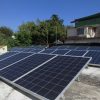
HAVANA, Apr 17 (IPS) - With a bolder policy and flexible payment mechanisms, perhaps Alexis Rodríguez would have opted for solar panels for his home, instead of the portable generator that has made it possible for him to weather the frequent blackouts caused by Cuba's recurrent energy crises.
Africa Pushing Limits To Boost Renewable Energy Supply Chain, Security Access
- Inter Press Service
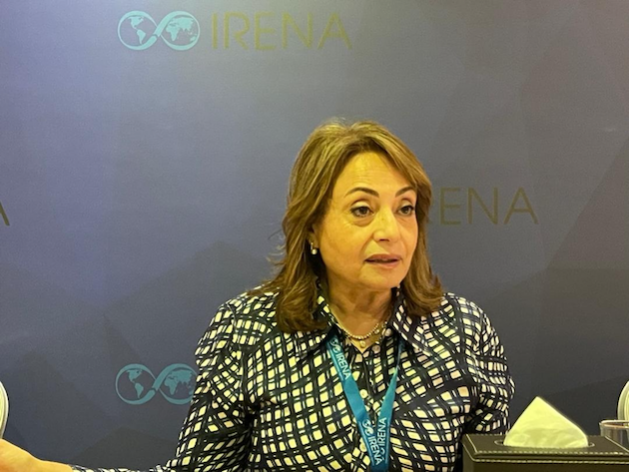
ABU DHABI, Apr 17 (IPS) - Investors, regulators, researchers, policymakers, and representatives of renewable energy companies, acknowledged the key challenges of shifting away from fossil fuels to renewable energy in Africa when they gathered in Abu Dhabi, United Arab Emirates (UAE) this week.
Solar Power and Biogas Empower Women Farmers in Brazil
- Inter Press Service

ACREÚNA/ORIZONA, Brazil, Apr 16 (IPS) - A bakery, fruit pulp processing and water pumped from springs are empowering women farmers in Goiás, a central-eastern state of Brazil. New renewable energy sources are driving the process.
Migration in the Americas: A Dream That Can Turn Deadly
- Inter Press Service

MONTEVIDEO, Uruguay, Apr 16 (IPS) - The Darién Gap is a stretch of jungle spanning the border between Colombia and Panama, the only missing section of the Pan-American Highway that stretches from Alaska to southern Argentina. For good reason, it used to be considered impenetrable. But in 2023, a record 520,000 people crossed it heading northwards, including many children. Many have lost their lives trying to cross it.
Indigenous Kalinago lead the way towards making Dominica ‘climate resilient’
- UN News

Dominica aims to become the world’s first “climate-resilient nation, and the indigenous Kalinago people are playing a leading role in developing the country and helping its people to thrive in the face of the climate emergency.
Pioneering Digital Initiative Empowers Pacific Islands to Tackle Climate Disasters
- Inter Press Service

Apr 15 (IPS) - Winning a battle for survival requires understanding the opponent. And, for the peoples of 22 island nations and territories scattered across more than 155 million square kilometres of Pacific Ocean, the volatility and wrath of the climate are their greatest threats.
Fishers in Madagascar adapt to deadly seas due to climate change
- UN News

Fishing communities in the south of Madagascar are facing sometimes deadly sea conditions due to climate change, but with the help of the UN’s International Labour Organization (ILO) are finding ways to adapt to the new circumstances they face.
The Climate Alarm Is Ringing – It’s Time to Stop Silencing It
- Inter Press Service

LONDON, Apr 12 (IPS) - The heat records keep tumbling – 2023 was the hottest year in recorded history. Extreme weather events keep mounting up. And yet the voices most strongly calling for action to prevent climate catastrophe are increasingly being silenced.
Climate Governance, Adaptation, and Digital Solutions
- Inter Press Service

SUVA, Fiji, Apr 12 (IPS) - Let's take a moment to reflect on a critical question: In the decade since the Third International Conference on Small Island Developing States (SIDS3), what tangible progress have we made in addressing the challenges faced by our SIDS?
- More stories…
Health
Pandemic experts express concern over avian influenza spread to humans
- UN News

The ongoing global spread of “bird flu” infections to mammals including humans is a significant public health concern, senior UN medics said on Thursday, as they announced new measures to tackle airborne diseases.
IPCI 2024: Technology as a Tool to Advance and Threaten Sexual and Reproductive Health Rights
- Inter Press Service

OSLO, Apr 12 (IPS) - Technology emerged as a core theme of IPCI Oslo for its relevance in advancing the objectives of the Cairo Programme of Action.
Food Security and Food Safety in Africa Must Go Hand in Hand
- Inter Press Service
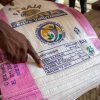
LUSAKA, Zambia, Apr 12 (IPS) - Russia’s invasion of Ukraine has restricted international exports and sent food costs soaring – particularly for vulnerable populations still experiencing shocks from the pandemic and who can least afford to pay more to feed their families. Two years on, global food supply chains are still just as susceptible to serious disruptions caused by war, disease, and climate change. Those inevitable disruptions are leaving those on the African continent particularly vulnerable.
Nigeria first country to introduce ‘revolutionary’ meningitis vaccine
- UN News

Nigeria has become the first country to roll out a “revolutionary” five-in-one vaccine against meningitis, the World Health Organization (WHO) said in a statement on Friday.
Women Affected by Gender-Biased Climate Change Deserve Justice
- Inter Press Service
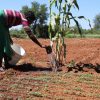
BULAWAYO, Apr 11 (IPS) - While research into the unequal impacts of climate change on women is growing, more is needed to enable them to realize their rights to climate justice.
IPCI 2024: Oslo Conference Focuses on Parliamentary Power over Reproductive Rights
- Inter Press Service

OSLO, Apr 10 (IPS) - Gearing up for the 30th anniversary of the International Conference on Population and Development (ICPD), the world’s parliamentarians and ministers are meeting in Oslo to determine the course of action needed to promote sexual and reproductive human rights (SRHR).
Hepatitis killing thousands daily, WHO warns in new report
- UN News

The number of lives lost due to viral hepatitis infections is increasing and already accounts for 3,500 deaths daily, according to a report by the World Health Organization (WHO) released on Tuesday.
Gaza: ‘Systematic dismantling of healthcare must end’ says WHO
- UN News

With the largest hospital in Gaza largely destroyed and out of action, access to healthcare has now become “totally inadequate” following six months of brutal fighting between Israeli forces and Palestinian militants, said the World Health Organization (WHO) on Saturday.
World News in Brief: Security Council condemns DR Congo attacks, cholera testing breakthrough, ‘my health, my right’ campaign
- UN News

The UN Security Council on Friday strongly condemned the latest rise in attacks by the M23 rebel group in the Democratic Republic of the Congo’s restive east, which has undermined security and exacerbated an already dire humanitarian situation.
Sudan: Aid lifeline reaches Darfur region in bid to avert ‘hunger catastrophe’
- UN News

Two aid convoys carrying lifesaving supplies have reached Sudan’s Darfurs for the first time in months, the UN World Food Programme (WFP) said on Friday, as humanitarians try to avert a “hunger catastrophe”after nearly a year of heavy fighting.
- More stories…
Economy
Portable Ginnery Could Revive Kenyas Ailing Cotton Industry
- Inter Press Service

NAIROBI, Apr 19 (IPS) - Kirinyaga University may have just breathed new life into Kenya’s ailing cotton industry as varsity dons develop a portable cotton ginnery.
Assembly President calls for massive investment in sustainable infrastructure
- UN News
The President of the UN General Assembly on Thursday underscored the critical need for resilient infrastructure if the world is the reach the 17 Sustainable Development Goals (SDGs) by the 2030 deadline.
Better Incentives Needed to Expand Solar Energy in Cuba
- Inter Press Service

HAVANA, Apr 17 (IPS) - With a bolder policy and flexible payment mechanisms, perhaps Alexis Rodríguez would have opted for solar panels for his home, instead of the portable generator that has made it possible for him to weather the frequent blackouts caused by Cuba's recurrent energy crises.
Women in Afghanistan: The future ‘depends on them’
- UN News

Despite facing formidable challenges, women-owned and run businesses in Afghanistan continue to demonstrate remarkable resilience, serving as vital pillars of economic stability and hope amidst adversity, a new UN report has found.
Trade Deception Returns in Pan-Africanist Guise
- Inter Press Service

ACCRA, Ghana, Apr 17 (IPS) - The World Bank has exaggerated probable gains from the African Continental Free Trade Area (AfCFTA) to promote partial and uneven trade liberalisation that is unlikely to enhance development on the continent.
Solar Power and Biogas Empower Women Farmers in Brazil
- Inter Press Service

ACREÚNA/ORIZONA, Brazil, Apr 16 (IPS) - A bakery, fruit pulp processing and water pumped from springs are empowering women farmers in Goiás, a central-eastern state of Brazil. New renewable energy sources are driving the process.
Rural Entrepreneurs Thriving Against All Odds in Zimbabwe
- Inter Press Service

JURU Growth Point, ZIMBABWE, Apr 16 (IPS) - With heavy sweat drenching his face and his shirt soaked in the sweat, 39-year-old Proud Ndukulani wrestled with a homemade knife, which he dipped in some used oil, before turning the glistening knife upon a rather tough and dusty tyre obtained from what he claimed was a forklift.
Conflict’s Long Shadow Has a Name: It’s Hunger
- Inter Press Service

NEW YORK, Apr 16 (IPS) - Scarce food and drinking water. Limited and inconsistent healthcare. Rapidly deteriorating mental health. With conflict on the rise globallythis is the grim reality for millions around the world.
Tourism ‘intrinsically susceptible’ to climate shocks, political unrest, pandemic threat
- UN News

The President of the UN General Assembly on Tuesday highlighted the urgent need to boost sustainable and resilient tourism practices to protect the environment while continuing to benefit local economies.
Indigenous Kalinago lead the way towards making Dominica ‘climate resilient’
- UN News

Dominica aims to become the world’s first “climate-resilient nation, and the indigenous Kalinago people are playing a leading role in developing the country and helping its people to thrive in the face of the climate emergency.
- More stories…
More news topics
Read more news stories by
More news by World, Economy, Environment, Geopolitics, Health, Human Rights, More news topics …
World news powered by and
and 
Issues in depth
Latest
Action on climate change is cheaper than inaction
Many are afraid that tackling climate change is going to be too costly. But increasingly, studies are showing action will not just be cheaper than inaction, but could actually result in economic, environmental and even health benefits, while improving sustainability.
Read “Action on climate change is cheaper than inaction” to learn more.
Climate Change and Global Warming Introduction
 The climate is changing. The earth is warming up, and there is now overwhelming scientific consensus that it is happening, and human-induced. With global warming on the increase and species and their habitats on the decrease, chances for ecosystems to adapt naturally are diminishing.
The climate is changing. The earth is warming up, and there is now overwhelming scientific consensus that it is happening, and human-induced. With global warming on the increase and species and their habitats on the decrease, chances for ecosystems to adapt naturally are diminishing.
Many are agreed that climate change may be one of the greatest threats facing the planet. Recent years show increasing temperatures in various regions, and/or increasing extremities in weather patterns.
This section looks at what causes climate change, what the impacts are and where scientific consensus currently is.
Read “Climate Change and Global Warming Introduction” to learn more.
COP20—Lima Climate Conference
 An overview of the Climate Change Conference (also known as COP 20), held in Lima, Peru in December 2014.
An overview of the Climate Change Conference (also known as COP 20), held in Lima, Peru in December 2014.
While it seemed like it was a successful meeting, because developing nations were committed to drawing up their own plans for emissions reductions for the first time, a number of important issues were left undecided such as how financing would work.
This page is an overview of the Lima Climate conference.
Read “COP20—Lima Climate Conference” to learn more.
Ebola Outbreak in West Africa
An overview of the Ebola virus outbreak in West Africa that has been described by the World Health Organization as the largest, most severe and most complex outbreak in the history of the disease.
The epidemic began at the end of 2013, in Guinea. From there it spread to Liberia, Sierra Leone, Nigeria and Senegal. Many of the affected countries face enormous challenges in stopping its spread and providing care for all patients.
Thousands of people have died and many are at risk as the fatality rate from this virus is very high. As the crisis worsens, as well as the enormous health challenges involved, the social and economic consequences may set these countries back, reversing some gains a number of these countries have made in recent years.
Read “Ebola Outbreak in West Africa” to learn more.
Foreign Aid for Development Assistance
In 1970, the world’s rich countries agreed to give 0.7% of their gross national income as official international development aid, annually.
Since that time, billions have certainly been given each year, but rarely have the rich nations actually met their promised target.
For example, the US is often the largest donor in dollar terms, but ranks amongst the lowest in terms of meeting the stated 0.7% target.
Furthermore, aid has often come with a price of its own for the developing nations. Common criticisms, for many years, of foreign aid, have included the following:
- Aid is often wasted on conditions that the recipient must use overpriced goods and services from donor countries
- Most aid does not actually go to the poorest who would need it the most
- Aid amounts are dwarfed by rich country protectionism that denies market access for poor country products while rich nations use aid as a lever to open poor country markets to their products
- Large projects or massive grand strategies often fail to help the vulnerable; money can often be embezzled away.
This article explores who has benefited most from this aid, the recipients or the donors.
Read “Foreign Aid for Development Assistance” to learn more.
Nature and Animal Conservation
 Preserving species and their habitats is important for ecosystems to self-sustain themselves.
Preserving species and their habitats is important for ecosystems to self-sustain themselves.
Yet, the pressures to destroy habitat for logging, illegal hunting, and other challenges are making conservation a struggle.
Read “Nature and Animal Conservation” to learn more.
Most Popular
Poverty Facts and Stats
Most of humanity lives on just a few dollars a day. Whether you live in the wealthiest nations in the world or the poorest, you will see high levels of inequality.
The poorest people will also have less access to health, education and other services. Problems of hunger, malnutrition and disease afflict the poorest in society. The poorest are also typically marginalized from society and have little representation or voice in public and political debates, making it even harder to escape poverty.
By contrast, the wealthier you are, the more likely you are to benefit from economic or political policies. The amount the world spends on military, financial bailouts and other areas that benefit the wealthy, compared to the amount spent to address the daily crisis of poverty and related problems are often staggering.
Some facts and figures on poverty presented in this page are eye-openers, to say the least.
Read “Poverty Facts and Stats” to learn more.
Global Financial Crisis
 Following a period of economic boom, a financial bubble — global in scope — burst, even causing some of the world’s largest financial institutions have collapsed. With the resulting recession, many governments of the wealthiest nations in the world have resorted to extensive bail-out and rescue packages for the remaining large banks and financial institutions while imposing harsh austerity measures on themselves.
Following a period of economic boom, a financial bubble — global in scope — burst, even causing some of the world’s largest financial institutions have collapsed. With the resulting recession, many governments of the wealthiest nations in the world have resorted to extensive bail-out and rescue packages for the remaining large banks and financial institutions while imposing harsh austerity measures on themselves.
Some of the bail-outs have also led to charges of hypocrisy due to the apparent socializing of the costs while privatizing the profits.
Furthermore, the institutions being rescued are typically the ones got the world into this trouble in the first place. For smaller businesses and poorer people, such options for bail out and rescue are rarely available when they find themselves in crisis.
Plummeting stock markets at one point wiped out 33% of the value of companies, $14.5 trillion. Taxpayers bailed out their banks and financial institutions with large amounts of money. US taxpayers alone have spent some $9.7 trillion in bailout packages and plans. The UK and other European countries have also spent some $2 trillion on rescues and bailout packages. More is expected. Much more.
Such numbers, made quickly available, are enough to wipe many individual’s mortgages, or clear out third world debt many times over. Even the high military spending figures are dwarfed by the bailout plans to date.
This problem could have been averted (in theory) as people had been pointing to these issues for decades. However, during boom, very few want to hear such pessimism. Does this crisis spell an end to the careless forms of banking and finance and will it herald a better economic age, or are we just doomed to keep forgetting history and repeat these mistakes in the future? Signs are not encouraging as rich nations are resisting meaningful reform…
Read “Global Financial Crisis” to learn more.
Causes of Poverty
Poverty is the state for the majority of the world’s people and nations. Why is this? Is it enough to blame poor people for their own predicament? Have they been lazy, made poor decisions, and been solely responsible for their plight? What about their governments? Have they pursued policies that actually harm successful development? Such causes of poverty and inequality are no doubt real. But deeper and more global causes of poverty are often less discussed.
Read “Causes of Poverty” to learn more.
Climate Change and Global Warming
 The climate is changing. The earth is warming up, and there is now overwhelming scientific consensus that it is happening, and human-induced. With global warming on the increase and species and their habitats on the decrease, chances for ecosystems to adapt naturally are diminishing. Many are agreed that climate change may be one of the greatest threats facing the planet. Recent years show increasing temperatures in various regions, and/or increasing extremities in weather patterns.
The climate is changing. The earth is warming up, and there is now overwhelming scientific consensus that it is happening, and human-induced. With global warming on the increase and species and their habitats on the decrease, chances for ecosystems to adapt naturally are diminishing. Many are agreed that climate change may be one of the greatest threats facing the planet. Recent years show increasing temperatures in various regions, and/or increasing extremities in weather patterns.
This section explores some of the effects of climate change. It also attempts to provide insights into what governments, companies, international institutions, and other organizations are attempting to do about this issue, as well as the challenges they face. Some of the major conferences in recent years are also discussed.
Read “Climate Change and Global Warming” to learn more.
Environmental Issues
 Environmental issues are also a major global issue. Humans depend on a sustainable and healthy environment, and yet we have damaged the environment in numerous ways. This section introduces other issues including biodiversity, climate change, animal and nature conservation, population, genetically modified food, sustainable development, and more.
Environmental issues are also a major global issue. Humans depend on a sustainable and healthy environment, and yet we have damaged the environment in numerous ways. This section introduces other issues including biodiversity, climate change, animal and nature conservation, population, genetically modified food, sustainable development, and more.
Read “Environmental Issues” to learn more.
Racism
 Racism is the belief that characteristics and abilities can be attributed to people simply on the basis of their race and that some racial groups are superior to others. Racism and discrimination have been used as powerful weapons encouraging fear or hatred of others in times of conflict and war, and even during economic downturns. This article explores racism from around the world.
Racism is the belief that characteristics and abilities can be attributed to people simply on the basis of their race and that some racial groups are superior to others. Racism and discrimination have been used as powerful weapons encouraging fear or hatred of others in times of conflict and war, and even during economic downturns. This article explores racism from around the world.
Read “Racism” to learn more.
Topical
Global Financial Crisis
 Following a period of economic boom, a financial bubble — global in scope — burst, even causing some of the world’s largest financial institutions have collapsed. With the resulting recession, many governments of the wealthiest nations in the world have resorted to extensive bail-out and rescue packages for the remaining large banks and financial institutions while imposing harsh austerity measures on themselves.
Following a period of economic boom, a financial bubble — global in scope — burst, even causing some of the world’s largest financial institutions have collapsed. With the resulting recession, many governments of the wealthiest nations in the world have resorted to extensive bail-out and rescue packages for the remaining large banks and financial institutions while imposing harsh austerity measures on themselves.
Some of the bail-outs have also led to charges of hypocrisy due to the apparent socializing of the costs while privatizing the profits.
Furthermore, the institutions being rescued are typically the ones got the world into this trouble in the first place. For smaller businesses and poorer people, such options for bail out and rescue are rarely available when they find themselves in crisis.
Plummeting stock markets at one point wiped out 33% of the value of companies, $14.5 trillion. Taxpayers bailed out their banks and financial institutions with large amounts of money. US taxpayers alone have spent some $9.7 trillion in bailout packages and plans. The UK and other European countries have also spent some $2 trillion on rescues and bailout packages. More is expected. Much more.
Such numbers, made quickly available, are enough to wipe many individual’s mortgages, or clear out third world debt many times over. Even the high military spending figures are dwarfed by the bailout plans to date.
This problem could have been averted (in theory) as people had been pointing to these issues for decades. However, during boom, very few want to hear such pessimism. Does this crisis spell an end to the careless forms of banking and finance and will it herald a better economic age, or are we just doomed to keep forgetting history and repeat these mistakes in the future? Signs are not encouraging as rich nations are resisting meaningful reform…
Read “Global Financial Crisis” to learn more.
Climate Change and Global Warming
 The climate is changing. The earth is warming up, and there is now overwhelming scientific consensus that it is happening, and human-induced. With global warming on the increase and species and their habitats on the decrease, chances for ecosystems to adapt naturally are diminishing. Many are agreed that climate change may be one of the greatest threats facing the planet. Recent years show increasing temperatures in various regions, and/or increasing extremities in weather patterns.
The climate is changing. The earth is warming up, and there is now overwhelming scientific consensus that it is happening, and human-induced. With global warming on the increase and species and their habitats on the decrease, chances for ecosystems to adapt naturally are diminishing. Many are agreed that climate change may be one of the greatest threats facing the planet. Recent years show increasing temperatures in various regions, and/or increasing extremities in weather patterns.
This section explores some of the effects of climate change. It also attempts to provide insights into what governments, companies, international institutions, and other organizations are attempting to do about this issue, as well as the challenges they face. Some of the major conferences in recent years are also discussed.
Read “Climate Change and Global Warming” to learn more.
Food and Agriculture Issues
 Food and agriculture goes to the heart of our civilizations. Religions, cultures and even modern civilization have food and agriculture at their core. For an issue that goes to the heart of humanity it also has its ugly side.
Food and agriculture goes to the heart of our civilizations. Religions, cultures and even modern civilization have food and agriculture at their core. For an issue that goes to the heart of humanity it also has its ugly side.
This issue explores topics ranging from the global food crisis of 2008, to issues of food aid, world hunger, food dumping and wasteful agriculture such as growing tobacco, sugar, beef, and more.
Read “Food and Agriculture Issues” to learn more.
Foreign Aid for Development Assistance
In 1970, the world’s rich countries agreed to give 0.7% of their gross national income as official international development aid, annually.
Since that time, billions have certainly been given each year, but rarely have the rich nations actually met their promised target.
For example, the US is often the largest donor in dollar terms, but ranks amongst the lowest in terms of meeting the stated 0.7% target.
Furthermore, aid has often come with a price of its own for the developing nations. Common criticisms, for many years, of foreign aid, have included the following:
- Aid is often wasted on conditions that the recipient must use overpriced goods and services from donor countries
- Most aid does not actually go to the poorest who would need it the most
- Aid amounts are dwarfed by rich country protectionism that denies market access for poor country products while rich nations use aid as a lever to open poor country markets to their products
- Large projects or massive grand strategies often fail to help the vulnerable; money can often be embezzled away.
This article explores who has benefited most from this aid, the recipients or the donors.
Read “Foreign Aid for Development Assistance” to learn more.
Tax Avoidance and Tax Havens; Undermining Democracy
 Through tax havens, transfer pricing and many other policies — both legal and illegal — billions of dollars of tax are avoided. The much-needed money would helped developing (and developed) countries provide important social services for their populations.
Through tax havens, transfer pricing and many other policies — both legal and illegal — billions of dollars of tax are avoided. The much-needed money would helped developing (and developed) countries provide important social services for their populations.
Some tax avoidance, regardless of how morally objectionable it may be to some people, is perfectly legal, and the global super elite are able to hide away trillions of dollars, resulting in massive losses of tax revenues for cash-strapped governments who then burden ordinary citizens further with austerity measures during economic crisis, for example. Yet these super elite are often very influential in politics and business. In effect, they are able to undermine democracy and capitalism at the same time.
As the global financial crisis has affected many countries, tackling tax avoidance would help target those more likely to have contributed to the problem while avoid many unnecessary austerity measures that hit the poorest so hard. But despite rhetoric stating otherwise, it does not seem to high on the agenda of many governments as you might think.
Read “Tax Avoidance and Tax Havens; Undermining Democracy” to learn more.
World Military Spending
World military spending had reduced since the Cold War ended, but a few nations such as the US retain high level spending.
In recent years, global military expenditure has increased again and is now comparable to Cold War levels. Recent data shows global spending at over $1.7 trillion. 2012 saw the first dip in spending — only slightly —since 1998, in an otherwise rising trend.
The highest military spender is the US accounting for almost two-fifths of the world’s spending, more than the rest of the G7 (most economically advanced countries) combined, and more than all its potential enemies, combined.
Read “World Military Spending” to learn more.
“If a man is offered a fact which goes against his instincts, he will scrutinize it closely, and unless the evidence is overwhelming, he will refuse to believe it. If, on the other hand, he is offered something which affords a reason for acting in accordance to his instincts, he will accept it even on the slightest evidence.” — Bertrand Russell, Roads to Freedom
 Global Issues
Global Issues